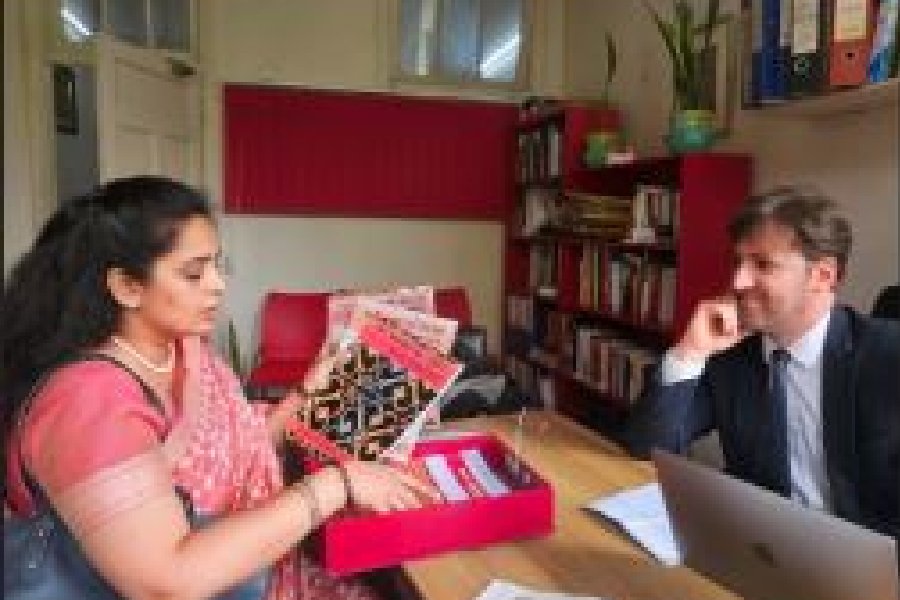An open-source participatory platform that empowers citizens to restore their own buildings was presented at a workshop at the Alliance Francaise du Bengale (AFB) on Monday.
The Restoration Toolbox, present online at therestorationtoolbox.com is the brainchild of Aishwarya Tipnis, the architect helming the restoration of the Registry Office in Chandernagore.
Recognised as one of the European Spaces of Culture by the European Union, the online resource-sharing platform encourages participatory heritage conservation in India among citizens and local communities, and gives access to expert advice so as to enable them preserve their own heritage.
AFB director Nicolas Facino pointed out the project’s three main activities — technology sharing and knowledge transfer; capacity-building and training; and dissemination of information to a wider audience.
“A lot of heritage buildings are lost as their owners do not have access to the right advice. During the lockdown, we realised that the architect could not visit the site. We did sketches, spoke to labourers online and got the work done. That made us realise that there was a virtual space for heritage conservation,” Tipnis told The Telegraph on the sidelines of the workshop.
She mentored architecture students during the pandemic to come up with user-friendly manuals for owners, engineers and contractors to consult.
There are 15 manuals in the toolbox on structural elements like terracotta tiles, timbre carvings, structural timbre, different kinds of ceilings and plaster.
The website uses open source technology developed by the Spanish technology platform Platoniq for the municipality of Barcelona, which allows participatory planning by citizens. “We have modified that to be used for heritage conservation here,” she said.
Anyone who has signed up on the platform can flag a building at risk and build a campaign to save it. “In future, we will link it to crowd-funding websites.”
Other than access to the manuals, a restoration clinic has been launched as part of the platform where experts are offering pro bono advice.
“We are starting with helping a restoration project in Mussoorie,” Tipnis said.
Tipnis hopes more conservation experts will sign up to do their bit for their respective cities by offering advice online or offline. A resource map will provide contacts of craftsmen and relevant shops.
The workshop was attended by conservation activists and heritage enthusiasts.
“It is a good framework which now needs to be populated with authentic details. While a critical mass of information on say, moisture extraction, would be universal, it would help to have local details like who does terracotta restoration in an area. The authenticity of the information uploaded by volunteers will also need to be checked,” said Ananya Bhattacharya, director of banglanatakdotcom.
